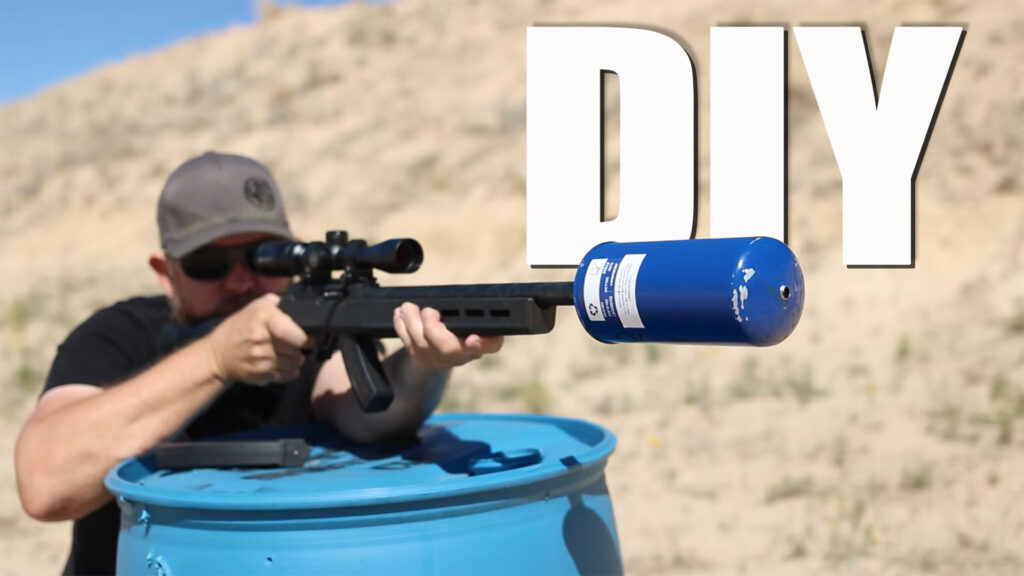- People who want an inexpensive silencer for their firearm can purchase certain devices sold as car filters.
- The trend is becoming a big business online despite possessing an unregistered silencer is a felony.
- It doesn’t appear as though there is any simple solution for these questionable parts on sale.
Gun lovers also tend to enjoy accessorizing, and silencers fall into that category. What happens though when a firearms enthusiast balks at the government’s regulations regarding silencer ownership? Some appear to be turning to car parts to satisfy their desire and it’s becoming a big business online, especially on Meta’s Facebook and Instagram social media platforms.
The Bureau of Alcohol, Tobacco, Firearms and Explosives (ATF) is keen on knowing about every single silencer (also known as a suppressor) in the USA. Anytime a person goes out to buy one, they have to submit fingerprints, pass a background check, pay off the ATF, and register the device.
More: Tesla Wanted $3,000 To Fix Cybertruck, Owner Repairs It For $25
According to Wired, there’s a much simpler way to get a suppressor for those willing to break the law. Dozens of websites offer what they call “fuel filters” to those willing to do a little DIY work. While law allows them to register the device with the ATF to keep things above board, that’s not what’s happening – and, lacking federal approval, owners could be hit with felony charges.
Sellers Act With Impunity
Often marketed online as “solvent traps,” devices used to clean gun barrels, these filters have specific part numbers. Listed as the Napa4003 or Wix24003, the filters in question look a lot like silencers without any modification. YouTubers have shown off the devices online for several years, to varying degrees of success.
“You know those things that are definitely not suppressors, even though they look just like suppressors,” a man says in a video. “Well, but they’re still not suppressors, because they don’t have a hole in the other end. So, you can legally own one without going through the paperwork to own a suppressor, because it isn’t one.”
Man Gets 3 Years In Prison For Owning Such Devices
The feds, however, beg to differ. In January 2023, a 41-year-old man from Virginia was convicted of unlawful possession of unregistered silencers. Per the Department of Justice official release, the man, who in 2021 spent more than $40,000 in purchasing firearms and assorted accessories, expressed his “anti-Semitic, anti-government ideologies” with an undercover FBI agent in early 2022.
He also discussed “taking violent action in furtherance of his ideologies” and he thought his “solvent traps,” i.e. his unregistered silencers, would help him in his purpose. In April 2023, he was sentenced to 3 years in prison for possessing those, supposedly “innocent”, devices.
ATF Issues A Warning, The Pentagon Is Concerned
In November 2023, the ATF issued a warning about using such devices and said that it is its functionality, and not what you call a product, that matters: “The test for whether an item is a silencer is not the label a manufacturer or retailer applies. Rather, it is the way the statute written by Congress applies to the item,” the ATF wrote regarding the definition of suppressors in the Gun Control Act and the National Firearms Act.
In the following video, you can see how these illegal suppressors look like. What’s particularly interesting that, apart from the #fuelfilter and #solventtrap hashtags, it also includes #Suppressor, #ar and #ak, with the last two being obvious references to the ubiquitous AK-47 and AR-15 firearms (and their multitude of variants).
According to the report, even the DoD is concerned. A presentation claims that a targeted ad for such a “fuel filter” had been pushed to high-ranking US military personnel on a government computer at the Pentagon. This raised questions about how the algorithms work. Apparently, advertisers target accounts that have a “US Army” or “Military” job description in their profile.
Tracking Illegal Silencers Isn’t Easy
In its coverage, Wired focuses heavily on Meta and what it can do about the issue. Ultimately, though, this trend isn’t limited to Mark Zuckerber’s business. In fact, it isn’t just filters that share similar sizing to a purpose-built suppressor either.
In a few cases, like in our lead image, some people modify everyday oil and fuel filters that are gigantic by comparison to do this same job. However, as the YouTube channel We Like Shooting points out, they’re not very practical.
That said, it’s clear that people who want a silencer can obtain one regardless of whether they go through official channels or not. The question really becomes one of whether or not anyone can stop the proliferation of this technology. What do you think? Let us know in the comments below!




